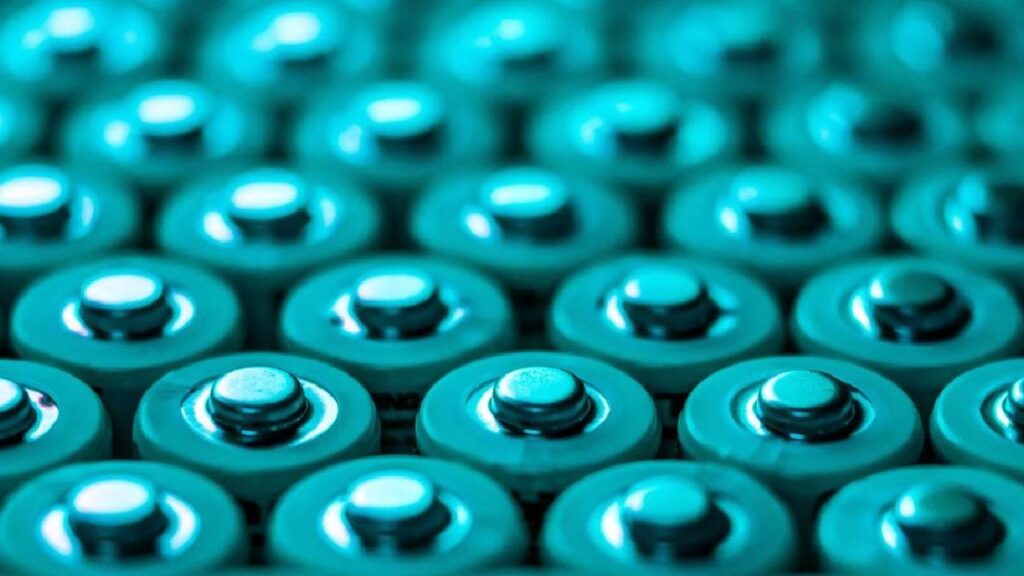The conglomerate is certainly bullish about the potential of the sodium-ion battery technology to power future affordable EVs.
Stellantis Ventures announces fresh investment and tie-up with Tiamat for the development of sodium-ion battery technology. Tiamat is a French company that works in developing and commercializing this battery technology. These batteries are prominent for offering a lower cost per kWh. Additionally, as the name suggests, it uses abundantly-available sodium, replacing lithium and cobalt for production. This enables enhanced sustainability and material sovereignty.

You may also like: Does the Future of EVs Rest on Sodium Ion Batteries?
Stellantis Invests In Sodium-Ion Battery Technology
Sodium ranks as the sixth most abundant element in the Earth’s crust. Notably, its proximity to Lithium on the periodic table results in nearly analogous properties to Lithium. The abundant availability of Sodium translates to a considerably lower cost compared to Lithium. Currently, the predominant obstacle to the widespread adoption of electric vehicles lies in their cost, apart from challenges related to charging infrastructure.
Tiamat
The French firm recently received the honour as one of 11 top-performing technology start-ups with the Stellantis Venture Awards in 2023. In fact, it boasts the title of being the first company in the world to have recently commercialized a sodium-ion technology in the electrified product, as per the official press release by Stellantis.
Ned Curic, Stellantis Chief Engineering and Technology Officer said, “Exploring new options for more sustainable and affordable batteries that use widely available raw materials is a key part of our ambitions of the Dare Forward 2030 strategic plan that will see us reach carbon net zero by 2038”. He added, “Our customers are asking for emissions-free vehicles that offer a combination of robust driving range, performance and affordability. This is our North Star, as Stellantis and its partners work today to develop ground-breaking technologies for the future.”
You may also like: 5 New EV Battery Technologies – Aluminium-ion to Niobium
Learn Electric Cars Says
We have already reported the pros and cons of Sodium-ion batteries in one of our previous posts. It is definitely among one of the most compelling methods to reduce dependence on materials like Cobalt (its mining has ethical and humane challenges in Congo) and Nickel. Furthermore, there will never be a shortage of Sodium. Sure, a lot of work is required to make it energy-dense to be used in cars without compromising on performance. But with the passage of time and new investments, these obstacles can be overcome. Let us keep a close eye on further developments in this space.


Pingback: Hyundai Unveils 'Active Air Skirt' Tech To Raise EV Range & Power
Pingback: Silicone Anode Holds Great Potential For Next-Gen EV Batteries
Pingback: Formula E Helps Legacy Carmakers Build Better EV Technologies
Pingback: กติกา ในการเล่นสล็อตออนไลน์
Pingback: pk789
Pingback: SWS Marketing
Pingback: hit789
Pingback: บริการรับสร้างบ้าน
Pingback: ...
Pingback: sex girldie
Pingback: ลดข้าวดีด ข้าวเด้ง
Pingback: gambia senegal
Pingback: free webcam tokens
Pingback: สล็อต PG เล่นฟรีไม่มีจำกัด ไม่ต้องฝากเงิน
Pingback: สล็อตเว็บใหญ่ เดิมพันเริ่มต้น 1 บาทลุ้นโบนัสไม่อั้น
Pingback: รีวิวโรงงานจีน
Pingback: altogel
Pingback: xbet99
Pingback: W88 login Moblie เล่นทางมือถือ
Pingback: Mostbet
Pingback: face exercise
Pingback: buy golden teacher mushroom
Pingback: here’s the site where I tried it
Pingback: ufa777
Pingback: ufa789
Pingback: รับซื้อแบรนด์มือสอง
Pingback: ufabet789
Pingback: 一次性電子煙
Pingback: click this over here now
Pingback: kibris escort fiyatlari
Pingback: clothing manufacturer
Pingback: Go X business partnerships